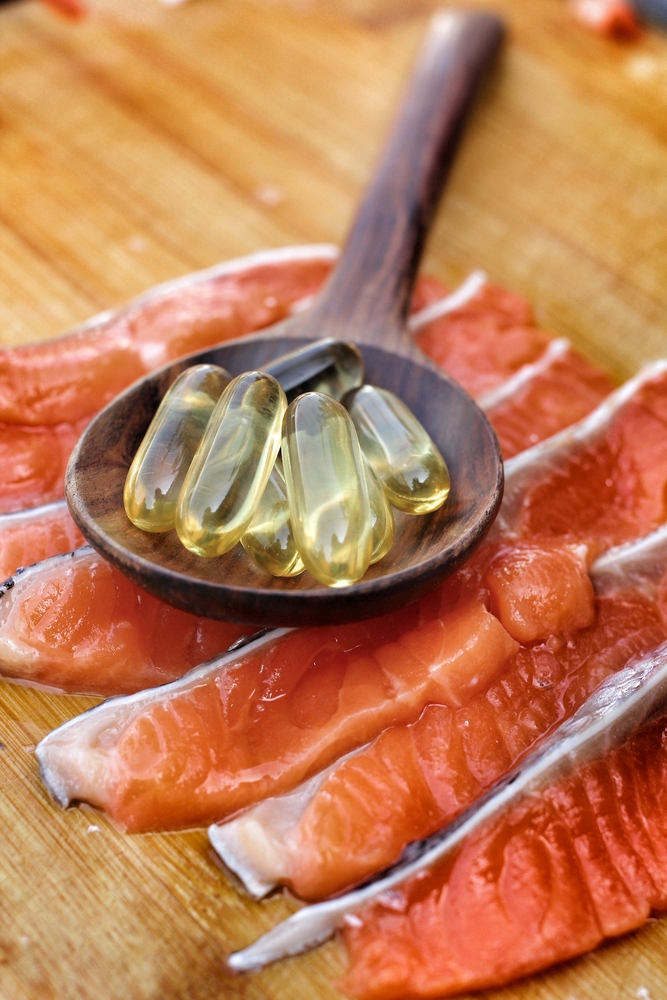Effective Anti-Inflammatory Foods to Ease Arthritis Symptoms and Improve Joint Health
Discover the top five anti-inflammatory foods that can help alleviate arthritis symptoms naturally. Including fatty fish, garlic, cruciferous vegetables, berries, and nuts in your diet can significantly reduce joint inflammation, ease pain, and support long-term joint health. This comprehensive guide highlights the importance of dietary choices in managing arthritis alongside other lifestyle modifications, offering sustainable solutions for better mobility and overall well-being.

Arthritis is a widespread condition that primarily affects the joints, leading to inflammation, persistent pain, swelling, and stiffness. It impacts millions of people worldwide, significantly reducing quality of life if not managed properly. The disease manifests in various forms, with osteoarthritis and rheumatoid arthritis being the most commonly diagnosed. Genetic predisposition, obesity, immune dysfunctions, and previous joint injuries are among the main contributing factors that increase the risk of developing arthritis. While conventional treatment involves medications, physical therapy, and in severe cases, surgeries, lifestyle modifications—especially dietary adjustments—play a crucial role in managing symptoms. Incorporating anti-inflammatory foods into daily meals can significantly reduce joint discomfort, slow disease progression, and enhance joint mobility. This comprehensive guide explores five of the most effective anti-inflammatory foods to help alleviate arthritis symptoms naturally and improve overall joint health.
Understanding Arthritis and Its Impact on Joint Health
Arthritis is a generic term that covers over 100 different joint disorders, with osteoarthritis and rheumatoid arthritis being the most prevalent. Osteoarthritis results from the gradual wear-and-tear of cartilage, leading to bones rubbing against each other, which causes pain and stiffness. Rheumatoid arthritis, on the other hand, is an autoimmune condition where the immune system mistakenly attacks joint tissues, resulting in inflammation, swelling, and potential deformity. Regardless of the type, the common denominator is inflammation—an immune response that, when chronic, causes significant tissue damage and discomfort.
Chronic inflammation not only affects joints but can also impact overall health, increasing the risk of cardiovascular disease, obesity, and other health issues. Managing inflammation through diet can be a powerful strategy to mitigate these risks and improve symptom control. Scientists and healthcare providers increasingly recognize the importance of nutritional interventions to reduce joint inflammation, improve mobility, and promote long-term joint preservation.
The Role of Diet in Managing Arthritis
While medications and physical therapies are essential parts of arthritis treatment plans, dietary strategies offer a natural way to combat inflammation. Foods rich in antioxidants, healthy fats, fiber, and vitamins can neutralize free radicals, reduce inflammatory cytokines, and strengthen joint structures. Key nutrients like omega-3 fatty acids, vitamin C, vitamin E, and antioxidants play a pivotal role in maintaining joint integrity and decreasing pain.
Incorporating specific anti-inflammatory foods into your diet isn't just about symptom relief; it can lead to overall improvements in health, including better heart health, weight management, and immune function. Here are the top five foods scientifically proven to combat joint inflammation and support healthy aging of your joints.
Top 5 Anti-Inflammatory Foods to Combat Arthritis
Fatty Fish Rich in Omega-3 Fatty Acids
Fatty fish such as salmon, mackerel, sardines, and trout are among the most potent natural sources of omega-3 fatty acids—namely EPA and DHA. These essential fats have powerful anti-inflammatory properties that can help reduce joint pain, stiffness, and swelling associated with arthritis. Incorporating these fish into your weekly diet can lower levels of inflammatory markers like prostaglandins and cytokines. Omega-3s also support cardiovascular health, which is crucial since arthritis patients are at an increased risk of heart disease. For those with dietary restrictions or preferences, high-quality fish oil supplements are available, providing a convenient alternative to boost omega-3 intake.
Garlic and Allium Vegetables
Garlic is renowned not just for its culinary appeal but also for its potent medicinal properties. It contains sulfur compounds and antioxidants like diallyl disulfide, which have been shown to reduce inflammation and act as natural analgesics. Regular consumption of raw or cooked garlic can help diminish joint pain and improve immune response. Additionally, garlic's cardiovascular benefits include lowering blood pressure and reducing cholesterol levels, further supporting overall health. Incorporating garlic into your meals—whether in salads, stir-fries, or roasted dishes—can be an effective, natural strategy to combat chronic inflammation common in arthritis)
Cruciferous Vegetables: Broccoli, Kale, Cabbage, and More
Cruciferous vegetables are nutrient-dense foods packed with antioxidants, fiber, vitamins C and K, and phytochemicals like sulforaphane. These compounds have demonstrated anti-inflammatory effects and can inhibit enzymes that contribute to cartilage degradation. Regular consumption of broccoli, kale, Brussels sprouts, radishes, and cabbage has been linked to reduced joint inflammation and improved cartilage health. These vegetables are versatile and easy to include in salads, soups, or steamed dishes—making them a staple in an anti-inflammatory diet aimed at mitigating arthritis symptoms.
Berries: Strawberries, Blueberries, Blackberries, and More
Berries are rich in antioxidants such as anthocyanins, flavonoids, and vitamin C. These nutrients help scavenge free radicals that cause oxidative stress and damage joint tissues. Studies have shown that berries can reduce markers of inflammation and improve joint flexibility. Including a variety of berries in your daily diet—either fresh or frozen—can help prevent further joint damage, alleviate pain, and provide a boost of essential vitamins and minerals that support overall health. Moreover, berries make a delicious, natural sweet treat that can be added to smoothies, cereals, or enjoyed as a snack.
Nuts, Seeds, and Healthy Fats
Almonds, walnuts, pistachios, flaxseeds, and chia seeds are excellent sources of vitamin E, magnesium, and healthy fats like omega-3 and omega-6. These nutrients work synergistically to combat inflammation, support tissue repair, and promote cardiovascular health. Nuts and seeds are also rich in fiber, which can help maintain a healthy weight—an important factor in managing arthritis symptoms. Regular consumption of small portions can help reduce systemic inflammation, improve joint function, and contribute to overall well-being.
Integrating Anti-Inflammatory Foods Into Your Daily Routine
Adopting an anti-inflammatory diet isn't about strict restrictions; rather, it's about making informed, healthful choices that support your joint health. Start by increasing your consumption of omega-3-rich fish, experiment with garlic and herbs, incorporate a variety of colorful vegetables and berries, and include nuts and seeds in snacks or meals. Combining these foods with other healthy lifestyle habits—such as maintaining a healthy weight, exercising regularly, avoiding smoking, and limiting processed foods—can exponentially increase their benefits.
Additionally, consulting with a healthcare provider or a registered dietitian can help tailor dietary choices to your specific health needs and ensure that dietary modifications complement your ongoing medical treatments.
Conclusion: Nourish Your Joints Naturally for Better Mobility and Pain Relief
While arthritis can cause significant discomfort and impact daily life, the power of nutrition offers a promising avenue for natural symptom management. By focusing on anti-inflammatory foods like omega-3 fatty acids, garlic, cruciferous vegetables, berries, and healthy fats, individuals can take proactive steps toward reducing joint inflammation and fostering stronger, healthier joints. Remember, combining a nutrient-rich diet with other lifestyle modifications and medical guidance can provide the most effective approach to managing arthritis and maintaining an active, pain-free lifestyle.
Empower yourself with these dietary strategies and enjoy a better quality of life with improved joint health and reduced arthritis symptoms.





